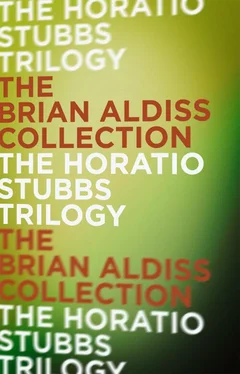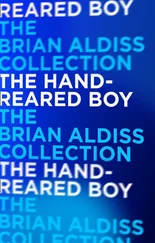They were interested but sceptical. Hilda, darling girl, reached out and touched it and said it was nice. Sheila was more cautious. Already our grown-up selves were foreshadowed there.
The next picture I have is of a slight advance. The water-butt again, scene of happiness and depravity. Sheila and Hilda there again, and a smaller girl, name forgotten. Again I open my trousers and exhibit. Again they stare, with none of the maidenly modesty that will afflict them in a very few years.
Hilda and the little girl look very closely, getting in each other’s way. Sheila stands back, half-leaning against the wall.
‘It’s nice,’ says the small girl. She makes no attempt to touch. ‘You can come and play in my garden after school, if you like.’
She lifts up her dress and takes her knickers down; Hilda follows suit. Both show me what they have, and the little girl giggles a lot and flaps her skirt up and down. I concentrate on Hilda’s thing. It looks pretty and chubby. Her stomach and thighs are pleasant to me.
I say to Sheila, ‘Let me see yours too.’
‘Some other time,’ she says, lolling from side to side, smiling into the distance, confident possibly that I would enjoy what she kept concealed. As far as I recall, she never did show me.
After school Hilda and I decided that we would go into the little girl’s garden and play, the assumption being that we could then have a better look at each other. But the little girl was met at the school gates by a nanny and led away firmly by the hand, while we were shoved away.
Time went by, the endless congealed time of children and lunatics. Basically, cricket and Red Indians interested me more than female wee-wees. They seemed to possess more potential in those days.
The slump was on. Father went about with a long face, predicting that the bank would have to close. ‘Money has dried up,’ he said. Money has dried up – a marvellous phrase! I pictured it golden, damp, congealed, like beaches as the tide leaves them.
We were seeing something of beaches at this time. Taking advantage of a customer’s bankruptcy, my father bought from him a small bungalow on the North Norfolk coast. We used to drive there for summer weekends – a long boring drive that grew interesting only when we got through Spalding and King’s Lynn and could smell the sea. The bungalow was on the dunes just outside Hunstanton. The tide went out for miles, leaving all that congealed money, and I never got over the wonder of it.
The sea air was supposed to ‘do me good’. I suffered much from bilious attacks at the time, greatly to the bafflement of our family doctor and my parents. Nelson called me a dirty beast, but I was always scrupulous about never being sick anywhere but in the right place.
It is clear enough to me now what ailed me. I was emotionally upset by my mother.
She was no disciplinarian. Father would take a stick to Nelson and me when we were naughty; it was a painful punishment that left no after-effects – only Father’s habit of insisting I shook hands with him directly afterwards, as if to absolve himself from guilt, faintly annoyed me. But Mother’s way of inducing goodness into us was altogether more deadly. She threatened that she would not love us any more, and that she would run away from home, taking Ann with her.
Perhaps such threats would mean nothing to an insensitive child, if there is such a thing. To me, who had experienced separation from my mother at birth, they loomed enormous. I was frequently sick because that would keep Mother at home; she pampered me marvellously when I was ill in bed. (At the time, of course, I had no inkling of my own thought processes.)
My mother was capable of actually carrying out her threats. On one occasion, when Nelson and I had done something of which she did not approve, she put Ann into her coat, hat, and leggings, stuffed her in the push-chair, and was off. We had the terrible mortification of seeing her from our bedroom windows, heading for the market place, Ann howling with apprehension as she went. If my memory serves, this was the last occasion on which I saw Nelson cry. We cuddled together against the bed and wept, ‘She’ll never come back! We must try to be better boys!’
No doubt Mother’s treatment of us had much to do with her mysterious nerves, which the seaside was expected to alleviate. Sometimes, Grandfather and Grandmother came down with us for the day, to look after the children while Mother went for one of her walks along the beach. In covert misery I used to watch her tall figure dwindle in the perspectives of the shore, wondering whether she meant to return, or whether something mysterious and terrible would happen to her as soon as she was out of my sight.
Sometimes she would take one of these seashore walks with ‘Uncle’ Jim. Uncle Jim Anderson was a smiling man with cold red hands who made rare and ambiguous intrusions into our family life. He and Father were always very hearty with each other. When Uncle Jim appeared at our bungalow he would bring amazing things to eat at picnics – game pies and pineapples, I remember – and was welcome on that account. But he would also accompany Mother on her long walks; then Nelson and I became strangely uneasy and refused to swim, even when Grandfather shouted at us.
‘Do you think he and Mum are up to something?’ Nelson asked. We suspected they were, although we had not the vaguest idea what people did when they were up to something.
When Nelson was going to grammar school he became more remote from me. In my own little animal world I formed a tentative pact with Ann. Although Mother mothered her vigorously, Ann was by no means her slave, as I felt I would have been had I received such smothering kindness. Ann reserved her independence. This meant that she was not entirely a reliable ally; anything I did which she disliked was reported at once, and loudly, to Mother. Yet she plotted against Mother in her own right and, of us three children, she was the most subversive. She was a clever and inventive child, and together we used to stray far from home over the common. Once we saw an old tramp take his trousers down and shit under a gorse bush, which embarrassed us both greatly.
We invented a fascinating and perilous game in the back garden. It began, I believe, after Mother took us all to the circus in Nottingham and we had seen some acrobats, performing.
Ann and I were tightrope-walkers. The clothes-line lay on the lawn, and we walked along it, pretending to sway perilously and occasionally fall off. Later we acquired a length of thick rope. With Nelson’s aid, this was stretched tightly between two apple trees, a foot or so above the ground. Ann and I soon learnt to walk along this with our shoes off, so that we were able to raise the height of the rope.
At its most developed, this game became quite professional.
The rope was stretched from the corner of the garden shed to our biggest apple tree, perhaps a yard above the ground. Sometimes we were in the jungle, escaping from wild animals, but more often we were kings, tightrope-walking above England; we could have as much of it as we could walk over without falling off. This must have presaged a later and more megalomanic game to be mentioned in due course.
Despite the gloomy predictions of our parents, I cannot recall that Ann and I ever hurt ourselves at this game, except on the final occasion we played it. We had tied one end of the rope to a vertical drainpipe running down the side of the shed; the drainpipe came away from the brickwork when I was on the rope. Falling, I did no more than graze a knee.
The craze was over, just another of the crazes of childhood, like marbles or hoops. I cannot recall ever trying to tightrope-walk again. Other attractions claimed me; among them was Hilda.
Читать дальше












